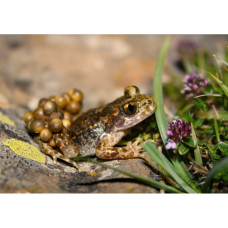les séminaires de l’ISYEB accueillent Katerina Guschanski de l’Université d’Uppsala

Les séminaires de l'ISYEB tous les mardi en amphithéâtre Rouelle

Les séminaires de l'ISYEB tous les mardi en amphithéâtre Rouelle
Understanding ecological and conservation needs of highly elusive species can be extremely challenging when relying solely on field observations. Genomic data has the potential to significantly aid in this endeavour by providing insights into long- and short-term population history, estimating genetic diversity, inbreeding and mutational load and by unraveling the evolutionary relationships of complex species assemblages. I will present an example of how genomic data can significantly improve our ecological understanding of a highly elusive and enigmatic guenon species endemic to the Congo Basin: The dryas monkey, Cercopithecus dryas. The dryas monkey is currently listed as endangered, and little is known about its true population size, distribution range, behavior, ecology and evolutionary history. Furthermore, the phylogenetic placement of this primate is still contested. By sequencing the complete genome of a C. dryas individual, we show that this species is a sister lineage to the vervets (genus Chlorocebus) and has diverged from them at least 1 mya. Additionally, we provide evidence supporting bi-directional gene flow between dryas and the common-ancestor of all non sabaeus vervets 590–360 cya, which took place across the Congo River. We surprisingly find high genetic diversity, low level of inbreeding and genetic load in the studied dryas individual, but also detect homozygous loss-of-function mutations in genes associated with sperm mobility and immunity. The demographic history and genome-wide measures suggest that the dryas population might be larger than currently recognized and that this species has good potential for long-term survival, if appropriate conservation measures are implemented. Combined with genomic data from other guenon species, we can begin to unravel the complexity of their evolutionary relationships, which are likely shaped by recurrent and extensive hybridisation.



